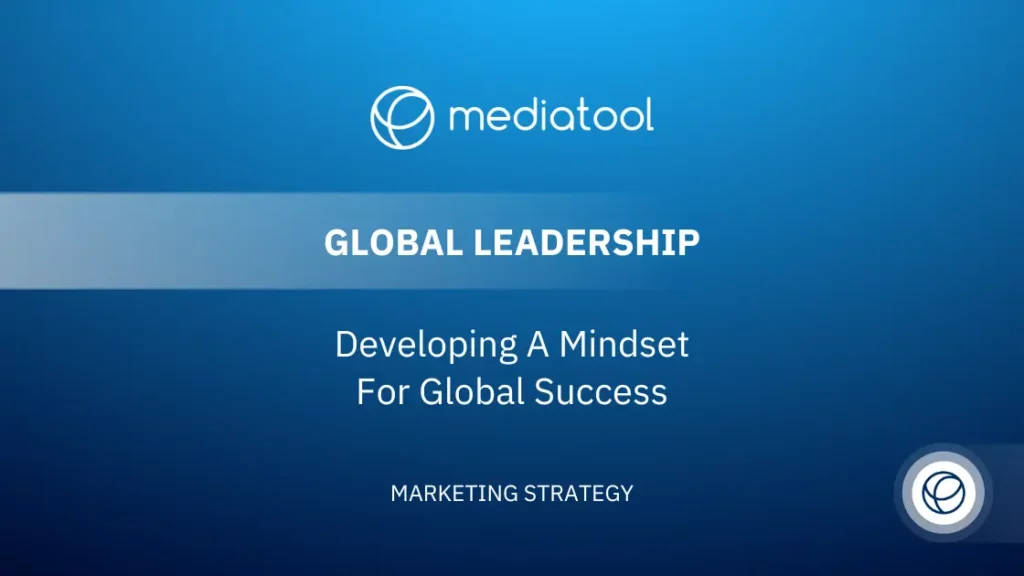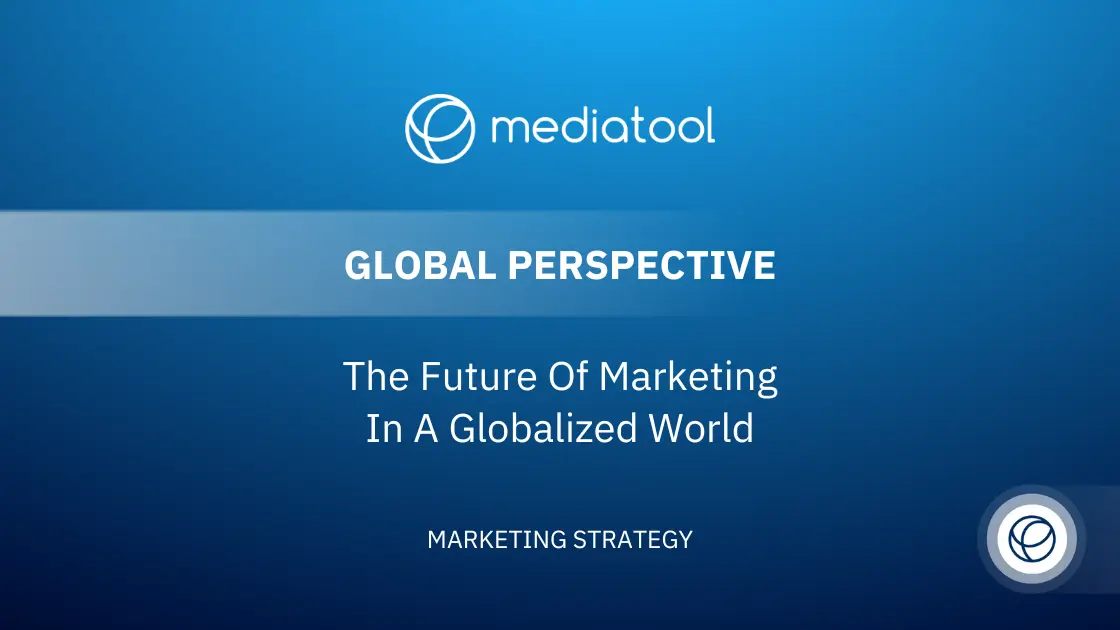When it comes to building and managing international marketing campaigns – great global leadership stands as the top priority.
Global leadership goes beyond traditional leadership, requiring an intricate blend of skills, insight, and adaptability to navigate the complexities of global markets.
As businesses strive to expand their reach and impact on the international stage, the role of a global leader becomes increasingly necessary.
This article explores the importance of the skills necessary for effective leadership, the development of a global mindset, and the defining characteristics of those who lead successfully on the global stage.
We’ll provide a comprehensive understanding of what it takes to succeed in global leadership and how it shapes the future of marketing and advertising in the global market.
What is Global Leadership?
Global leadership is about more than crossing borders. It involves understanding and working within diverse cultures, economies, and legal systems to drive growth and innovation worldwide. In marketing and advertising, being a global leader means seeing the world as full of opportunities.
These leaders are experts at tapping into global trends, adjusting to different cultural nuances, and using this insight to lead their companies to success across various markets. They navigate the complexities of global trade and international business, ensuring their strategies resonate on a global scale while meeting local market needs.
Through developing global leadership competencies, they guide global teams, communicate across cultures, and shape marketing messages that appeal to consumers worldwide.
The Importance of Global Leadership

In today’s interconnected world, the importance of global leadership cannot be overstated. It’s the backbone of companies aiming to thrive in the global market. For marketers, it means crafting messages that resonate across cultures, leading global teams with sensitivity and insight, and navigating the complexities of global trade with agility. Global leaders drive international business growth, bridge the gap between diverse teams, and ensure their brand’s universal value shines through in every campaign.
A concerning trend highlighted by the 2023 Global Leadership Forecast reveals a decline in leadership quality worldwide, with the study spanning over 50 countries and 24 industries. The results showed a significant 17% drop in the number of leaders who reported their company had high-quality leaders, plummeting to just 40%.
This statistic underscores the pressing need for robust global leadership development initiatives. Addressing this gap is essential, as high-quality leadership is critical for organizations to navigate the complexities of the global market successfully, foster innovation, and maintain competitive advantage.
Driving Growth in the Global Market
Global leadership is essential in today’s interconnected environment, serving as the foundation for companies looking to excel in the international arena. It enables organizations to navigate the complexities of global trade and tap into the expansive global market.
Notably, leaders focused on growth create 80% higher shareholder value compared to their peers across a decade. This statistic highlights the significant impact that global leadership has on financial performance and shareholder satisfaction over the long term.
By understanding and applying global leadership skills, leaders can effectively manage diverse teams and adapt their strategies to meet the demands of various markets worldwide. This approach not only fosters international business expansion but also ensures sustained organizational success in the global marketplace.
Enhancing Cross-Cultural Communication
For marketers, global leadership involves creating messages that resonate with audiences across different cultures. It’s about harnessing the power of global teams, leading them with empathy, and employing strategic thinking to overcome the challenges of cross-cultural communication.
This aspect of global leadership ensures that marketing campaigns carry a universal value, making brands relevant and appealing globally.
Bridging Diverse Teams
Global leaders act as bridge builders, uniting teams from different backgrounds and cultures towards a common goal. They possess a global mindset that helps them appreciate and leverage each team member’s unique insights and skills.
This enhances team collaboration and drives innovation, as diverse perspectives are key to developing successful strategies in the international business landscape.
Navigating International Business Dynamics
Effective global leaders are essential in steering their companies through the ever-changing dynamics of international business. They are adept at developing global leaders within their organizations, fostering a culture of continuous learning and adaptability.
Companies can better understand and capitalize on global trends through their leadership, ensuring sustained growth and success in foreign markets.
Skills Needed to Be an Effective Global Leader

To excel as a global leader in marketing and advertising, one must hone a distinct set of skills that cater to the global context. Strategic thinking is paramount, enabling leaders to anticipate market trends and optimally position their brand in world markets. Interpersonal skills are essential, not just for building rapport within teams but also for nurturing robust partnerships across different countries.
A profound grasp of cross-cultural communication is critical to ensure that marketing efforts are impactful and culturally sensitive, safeguarding the brand’s image from potential missteps.
Global leadership development plays a significant role in acquiring and refining these skills, focusing on the core competencies that successful leaders need to navigate the complex international landscape. Annually, international companies invest over $60 billion in leadership development initiatives, highlighting the importance and commitment to fostering these essential capabilities.
Understanding global management is also vital, as it equips leaders with the organizational acumen required to lead diverse teams effectively, meet the various expectations of international assignees, and utilize web-based tools for global projects. This knowledge is essential in a business world where global trade has increased, demanding a keen insight into the dynamic shifts of the global market.
Leaders who can define global leadership through their actions, embodying the characteristics necessary to lead people across the vast expanse of global business, set themselves apart. They are the top executives who create innovative strategies and lead their companies to thrive in the competitive environment of the first quarter and beyond.
These leaders focus on development, harnessing talent, and performing tasks that align with the universal goals of their company, thereby defining what it means to be a truly successful leader on the global stage.
Global Leadership Requires a Global Mindset
Cultivating a global mindset is essential for marketers aspiring to excel in global leadership. It’s about grasping the global market’s breadth while appreciating each local market’s subtleties. Such a mindset enables leaders to weigh their decisions against global influence and local nuances. Leaders are tasked with balancing the macro view of global trade dynamics with the micro view of consumer preferences across different countries.
This approach is essential for leading people effectively, accommodating different expectations, and navigating the complexities of international markets. A global mindset is not just about understanding how the value of global trade increased but also about recognizing other countries’ unique challenges and opportunities. It involves a commitment to developing leadership talent that can operate across global and local perspectives.
Participation in events like a global leadership summit can provide invaluable insights into emerging trends and strategies in global leadership as well as training to help leaders develop the skills necessary to lead diverse teams and work effectively with colleagues from various cultural backgrounds.
Ultimately, embracing a global mindset is about preparing to undertake the multifaceted task of leading an organization in today’s interconnected world.
What Are the Characteristics of a Global Leader?
Characteristics of successful global leaders in marketing and advertising include:
- Navigational Expertise: They adeptly maneuver through the complexities of international business, ensuring strategies and initiatives are effective across different global markets.
- Bridge Building: Global leaders excel at forging connections across borders, linking ideas, people, and opportunities to foster international collaboration and growth.
- Behavioral Flexibility: They display the ability to modify leadership styles to align with diverse cultural expectations and workplace situations, demonstrating versatility and empathy.
- Continuous Learning: A hallmark of a successful global leader is an unending commitment to learning and personal development, keeping pace with the dynamic global landscape.
- Adaptability: Recognizing the global business environment’s constant flux, they quickly adapt strategies and approaches to meet changing demands and challenges.
Wrapping Up
Global leadership is not just about crossing borders; it’s about breaking down barriers between cultures, markets, and people. It requires a unique blend of skills, a deep understanding of the global landscape, and an unwavering commitment to adaptability and growth.
By developing a global mindset, cultivating essential leadership qualities, and embracing the characteristics that define successful global leaders, individuals can lead their organizations to thrive in the complex and ever-changing world of international business.
The journey to global leadership is ongoing, demanding continuous learning and flexibility, but it promises significant rewards for those ready to take on its challenges.
Does your company run global campaigns?
The complexity of running and managing effective global campaigns can be daunting. Take a tour of Mediatool to see how you can build and manage global campaigns all from the same platform. Plan, track and report from a local to a global level, and have one source of truth for all your media.





